You hear it everywhere these days: the term “gent” or “gentleman” has become ubiquitous in men’s magazines, blogs, and conversations. Videos welcome “gentlemen” and everybody seems to use the word for a wide range of men.
A reader recently took us to task by saying that anything other than the traditional definition of a gentleman is a disappointment. Another claimed that a gentleman must have staff and would never cook for himself.
We couldn’t disagree more – the definition of a gentleman has changed and for the better. Prince Phillip, a textbook “gentleman” of wealth and position, is also famous for his potty mouth and racist gaffes. Are these gentlemanly behaviors? Certainly not.
Since the definition of a gentleman is so fundamental to what the Gentleman’s Gazette is, we thought it was time to outline how we see the gentleman today.
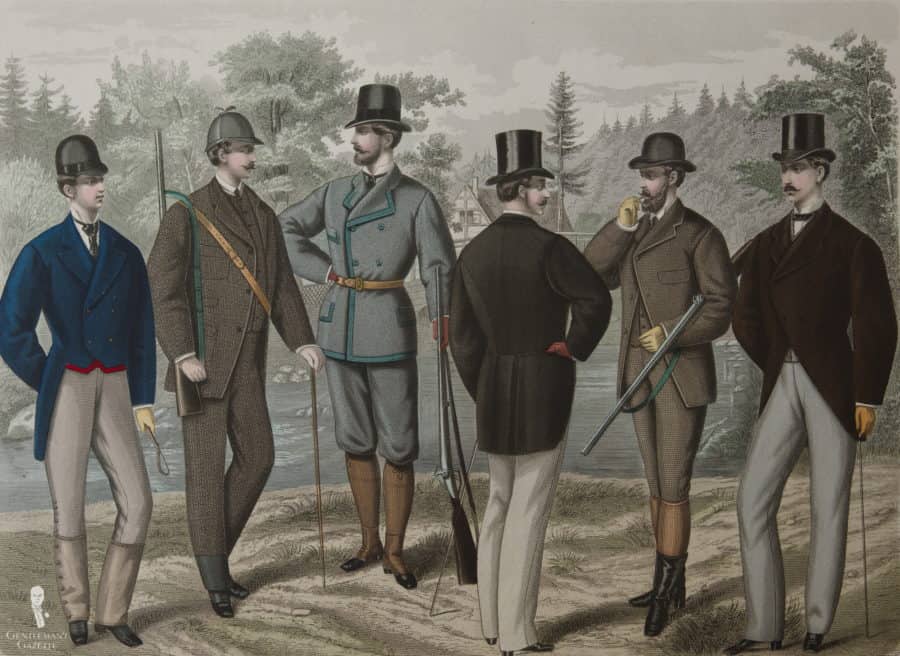
The Original Gentleman
A hundred years ago, a gentleman was a man of high social position and wealth. Even today dictionaries still retain this definition, as well as several others:
- A chivalrous, courteous, or honorable man.
- A polite or formal way of referring to a man.
- A man of noble birth attached to a royal household
- A man of good social position, especially one of wealth and leisure
- A courteous title for a male fellow member of the House of Commons or the House of Representatives
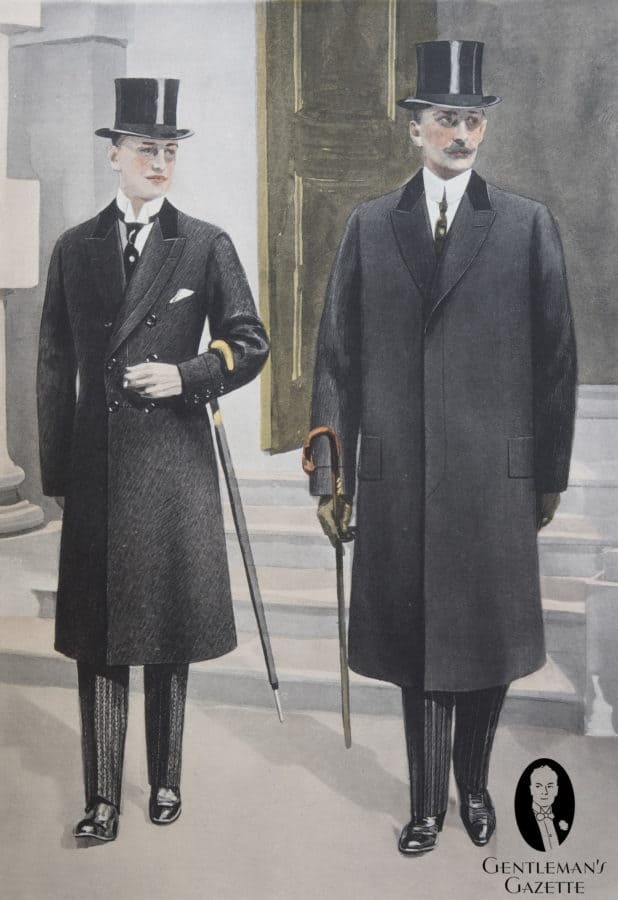
So what does it really mean? There is much more to being a gentleman than mere courtesy; traditional acts of chivalry can come off as condescending, and “honor” is a highly relative concept.
These days, the title “gentleman” is no longer relevant as an indication of one’s refinement and character, as it was once assumed to be for men of wealth and title who didn’t have to work for a living.
In our opinion, the term is far more egalitarian, and these days, to say you are a gentleman means you have to earn it. Wealth and power are no longer enough, and in fact, they simply aren’t a relevant part of the modern definition. Money and position can’t buy you class or respect.
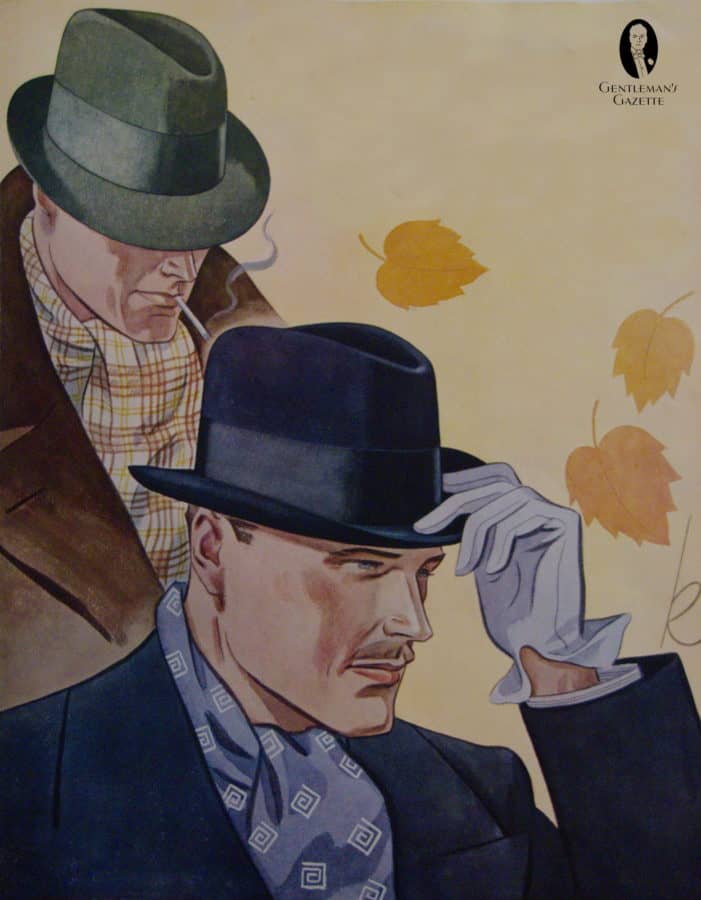
The Definition of a Modern Gentleman
The term is far more complicated, and we think it’s important to shed some light on why and how we use it, and why the definition of the modern gentleman matters.
We firmly believe any man can be a gentleman if he wants to be, but it’s not a small undertaking. It’s a journey, something that a man continually strives to be, rather than a destination. A gentleman is:

- A Gentleman is Imperfect. This may be the most important characteristic on the list. The term “gentleman” isn’t meant to be an unattainable ideal; it takes into account basic human nature, in which we all make mistakes, choices, and judgments every day. The difference lies in that a gentleman does not believe himself to be perfect, but instead takes ownership and responsibility for the things he can control: his actions, knowledge, and approach to the world.
- A Gentleman Has High Standards. High standards push people to do the best they can, and gentlemen set them for themselves. A gentleman expects a high standard of quality, value, and functionality from the things he buys to the things he does. He expects as much of himself as he does of other people.
- A Gentleman is Well Dressed: This one shouldn’t be a surprise. A well-dressed man is appropriately attired based on the season, the occasion, and his own style. Dressing well isn’t a matter of money for a gentleman, but rather of careful curation of clothing and accessories based on his means, the occasion, and his tastes. His dress demonstrates that he recognizes the power of clothes the impression they make, and the role they play in society. Clothes are used to convey a gentleman’s respect for his host, his office, or for the host of an event, but not to shock, evoke jealousy, or show off. Dressing well is a point of pride for a gentleman because it demonstrates his personality and taste.
- A Gentleman Has Good Manners: Here, we agree with the dictionary. A gentleman is courteous, polite, and respectful. He says please and thank you, waits his turn in line, and treats others as they wish to be treated. He is an equitable conversation partner and displays good table manners and dining etiquette.
- A Gentleman is Open Minded: A gentleman does not believe that his opinions and knowledge are complete and unquestionable. He strives to learn, is open to new ideas, accepts constructive criticism, and welcomes failure as a path to growth and self-awareness. A gentleman does not argue purely for the pleasure of being right but focuses on is able to put himself in other people’s shoes for the purposes of understanding an alternate perspective from his own.
- A Gentleman is Interesting and Informed: These days it is easy to get lost in the cycle of sleep-work-netflix-repeat that deprives people of anything interesting to say. An interesting man can successfully carry a conversation about a number of subjects, is interested in the world around him and how it works, and actively seeks to grow his knowledge for his own character building and enjoyment. Hobbies and personal interests reveal his passions and his engagement with activities that are meaningful to him.
- A Gentleman’s Actions Match His Words. Quite simply, a gentleman makes promises that he intends to keep.
- A Gentleman Treats People with Respect: When we say people, we mean everyone – women, colleagues, superiors, waitstaff and customer service people. This reflects a gentleman’s belief that all people are created equal; he does not claim to have more or fewer rights than those around him. He is compassionate with those less fortunate than himself. He doesn’t believe that the world is a zero-sum game, nor does he believe that putting someone else down will lift him up.
- A Gentleman Recognizes the Difference Between Arrogance and Confidence. If an arrogant man who believes himself to be of superior importance relies on his opinion of himself relative to others. A gentleman believes in himself and his abilities independently of other people. An arrogant man must always win to feel validated while a gentleman self-validates from within.
- A Gentleman Wields Power Purposefully. Though there are many potential sources for the statement “with great power comes great responsibility,” there is an inherent truth in it for a gentleman. If he is in a position of power, he combines all of the above traits to utilize that power purposefully and not selfishly. Not for revenge, not for his own personal gain, and not in a way that tramples the rights of others.
- A Gentleman Gives People the Benefit of the Doubt. Even though it can be a challenge to avoid cynicism in a tough world, a gentleman chooses to give people the benefit of the doubt. The person who cut you off on the highway may have received bad news; a friend may not respond to your call because they are behind at work – a gentleman tries not to jump to negative conclusions about other people.
So why does this all matter? It matters because being a gentleman sets a high bar for men, us included, to actively work towards every day. Rather than being a destination, it’s an aspiration that comes from the lifetime pursuit of personal betterment, self-awareness, and motivation.
The highest achievement is to be recognized as a gentleman by those around you, since at it’s core it is an honor conferred only by other people. We use the term gentleman frequently, and we think it should mean something. It’s not just a way to address other men; it’s a statement about who we are and who we want to be.
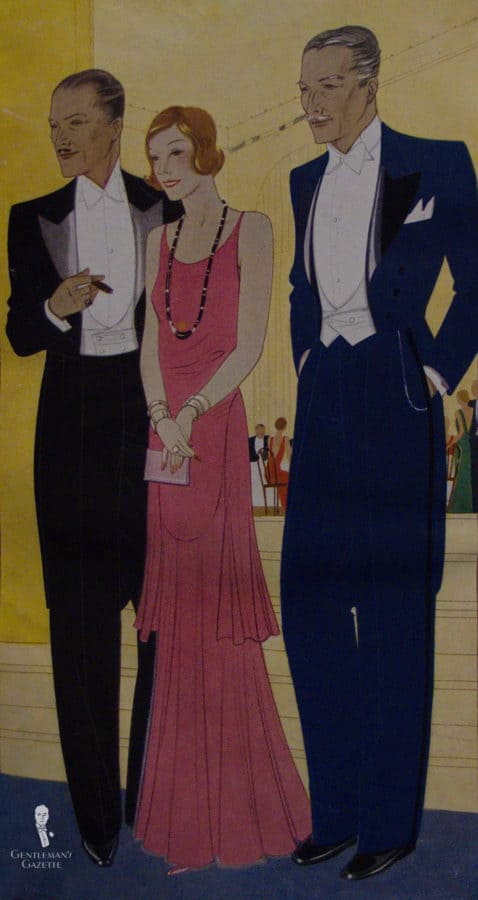
The Challenges of Being a Gentleman in Everyday Life
While all of this sounds admirable, living up to those ideals day in and day out can become quite challenging at times. When a man is in a bad mood, stressed or tired, he may say or do things that are out of character. In those situations it is important to apologize to others and if it is sincere people will accept it. I know what I am talking about because I certainly had my fair share of ungentlemanly failures.
My personal daily, gentlemanly struggle occurs with emails, article comments, and YouTube comments. I started the Gentleman’s Gazette because I wanted to share my passion for classic style to help men dress better through better information. At first, I eagerly replied to every email, comment or request personally like a gentleman would. Over time, more and more people found the way to our site, and it is no longer possible to reply to every comment and email personally. Of course, sometimes they are upset with us if we do not spend the time on them they think a gentleman would. In those cases, it feels very difficult not to reply because I want to, but without that discipline, it’s impossible to keep the Gentleman’s Gazette producing the articles, videos, products and emails that everyone enjoys. That aside, I try to give people the benefit of the doubt that they would understand if they knew.
What are your challenges of gentlemanly behavior in everyday life? Please share with us in the comments.
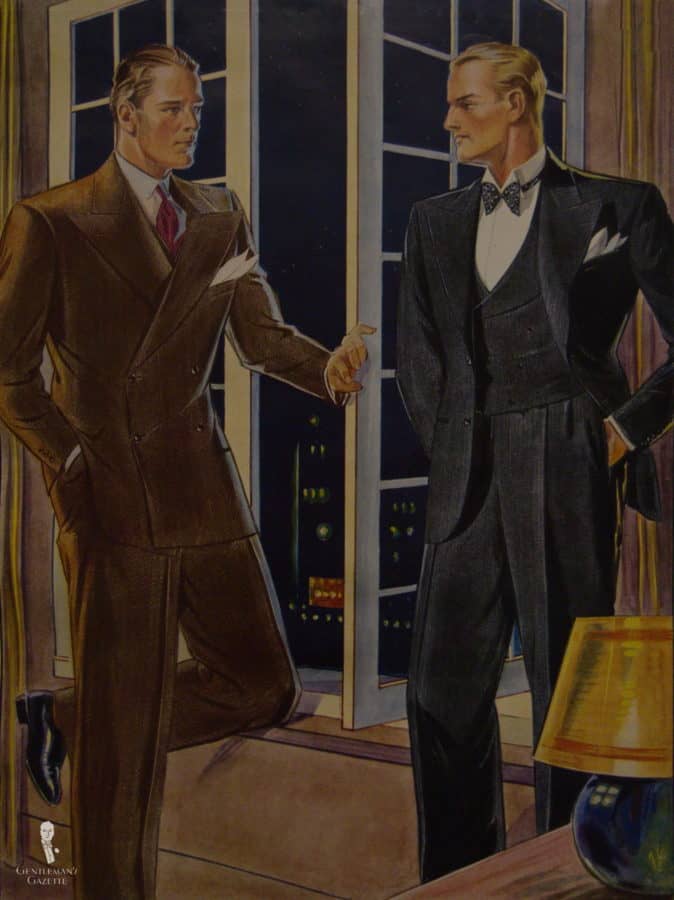
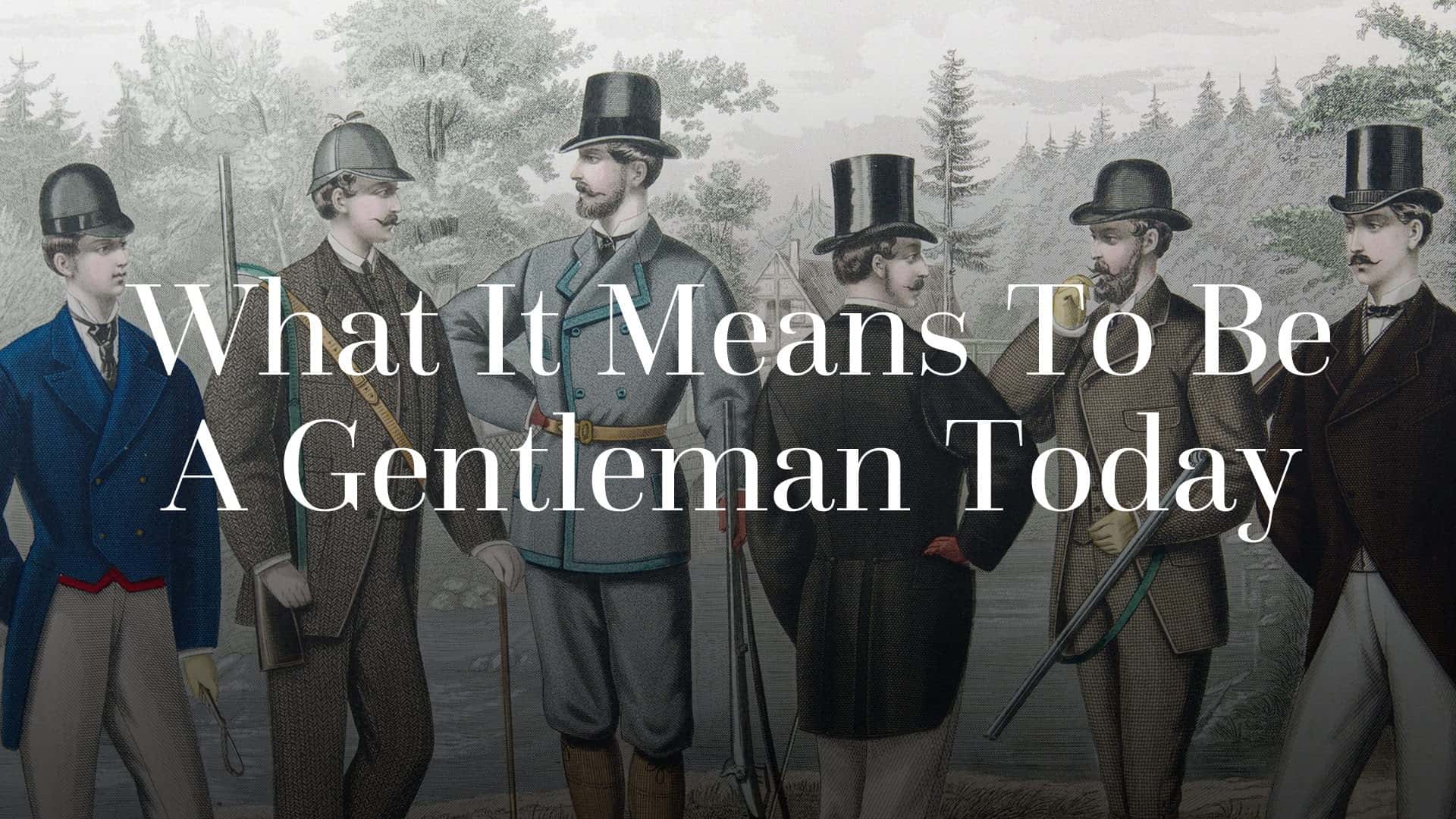

Reader Comments
Load More Comments
Comments are closed.